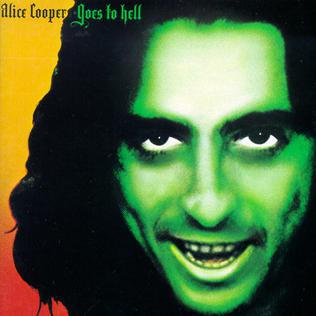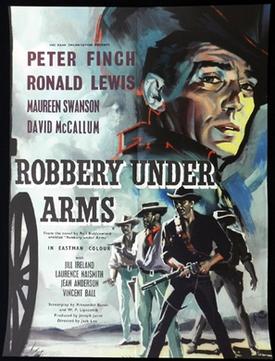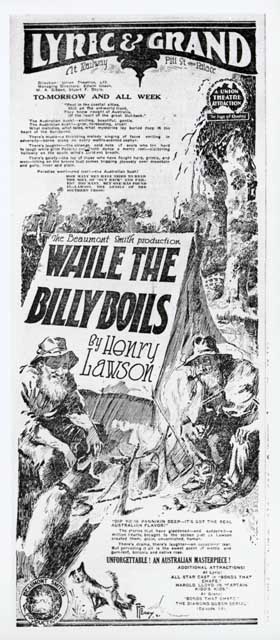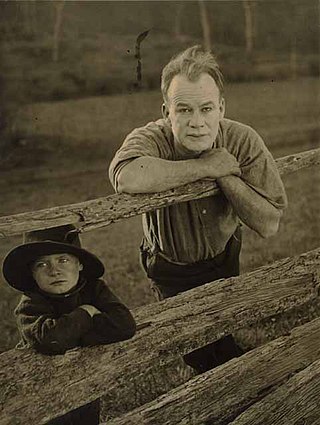Related Research Articles

The Burke and Wills expedition was organised by the Royal Society of Victoria (RSV) in Australia in 1860–61. It initially consisted of nineteen men led by Robert O'Hara Burke, with William John Wills being a deputy commander. Its objective was the crossing of Australia from Melbourne in the south to the Gulf of Carpentaria in the north, a distance of around 3,250 kilometres. At that time most of the inland of Australia had not been explored by non-Indigenous people and was largely unknown to European settlers.

Welcome to My Nightmare is the debut solo studio album by American rock musician Alice Cooper, released on February 28, 1975 by Atlantic Records. A concept album, its songs played in sequence form a journey through the nightmares of a child named Steven. The album inspired the Alice Cooper: The Nightmare TV special, a worldwide concert tour in 1975, and his Welcome to My Nightmare concert film in 1976. The tour was one of the most over-the-top excursions of that era. Most of Lou Reed's band joined Cooper for this record. Welcome to My Nightmare is his only album under the Atlantic Records label in North America; internationally, it was released on the ABC subsidiary Anchor Records.

Alice Cooper Goes to Hell is the second solo studio album by American rock musician Alice Cooper, released in 1976. A continuation of Welcome to My Nightmare as it continues the story of Steven, the concept album was written by Cooper with guitar player Dick Wagner and producer Bob Ezrin.
John Thomas Cooper was an Australian rules footballer who played for Fitzroy in the Victorian Football League (VFL).

A Small Town Girl was a 1914 American silent drama film directed by Allan Dwan and featuring Lon Chaney, Pauline Bush and Rupert Julian. The film is now considered to be lost.
Aboriginal trackers were enlisted by Europeans in the years following British colonisation of Australia, to assist them in exploring the Australian landscape. The excellent tracking skills of these Aboriginal Australians were advantageous to settlers in finding food and water and locating missing persons, capturing bushrangers and dispersing other groups of Indigenous peoples.
Dick-a-Dick was an Australian Aboriginal tracker and cricketer, a Wotjobaluk man who spoke the Wergaia language in the Wimmera region of western Victoria, Australia. He was a member of the first Australian cricket team to tour England in 1868 and was one of the most well-known Aborigines of the nineteenth century.

Robbery Under Arms is a 1957 British crime film directed by Jack Lee and starring Peter Finch and Ronald Lewis. It is based on the 1888 Australian novel Robbery Under Arms by Thomas Alexander Browne who wrote under the pseudonym Rolf Boldrewood.

While the Billy Boils is a 1921 Australian film from director Beaumont Smith based on Smith's stage play adaptation of several stories from Henry Lawson.

Joe is a 1924 Australian silent film comedy directed by Beaumont Smith based on the stories of Henry Lawson about the character Joe Wilson.
Robbery Under Arms is a 1907 Australian silent western/drama film based on the 1888 novel by Rolf Boldrewood about two brothers and their relationship with the bushranger Captain Starlight. It was the first film version of the novel and the third Australian feature ever made.
Captain Starlight, or Gentleman of the Road is a 1911 Australian silent film about the bushranger Captain Starlight. It was based on Alfred Dampier's stage adaptation of the 1888 novel Robbery Under Arms. It is considered a lost film.
The Life of Rufus Dawes is a 1911 Australian silent film based on Alfred Dampier's stage adaptation of the 1874 novel For the Term of His Natural Life produced by Cosens Spencer.
The Miner's Curse, or the Bush Wedding is a 1911 Australian silent film directed by Alfred Rolfe set during the Australian Gold Rush.
The Sin of a Woman is a 1912 Australian silent film directed by Alfred Rolfe.
Cooee and the Echo is a 1912 Australian silent film directed by Alfred Rolfe. It is considered a lost film.
Moira, or The Mystery of the Bush is a 1912 Australian silent film directed by Alfred Rolfe.
A Tale of the Australian Bush is a 1911 Australian silent film directed by Gaston Mervale. Set in colonial Australia, it was also known as Ben Hall, the Notorious Bushranger and is considered a lost film.
The Office Picnic is a 1972 Australian comedy film directed by Tom Cowan. It was entered into the 8th Moscow International Film Festival.
Break of Day is a 1976 Australian film set immediately after World War I.
References
- ↑ Lost in the Bush at State Library of South Australia
- ↑ Andrew Pike and Ross Cooper, Australian Film 1900–1977: A Guide to Feature Film Production, Melbourne: Oxford University Press, 1998 p271